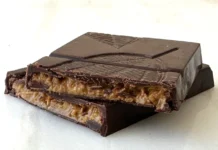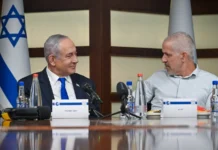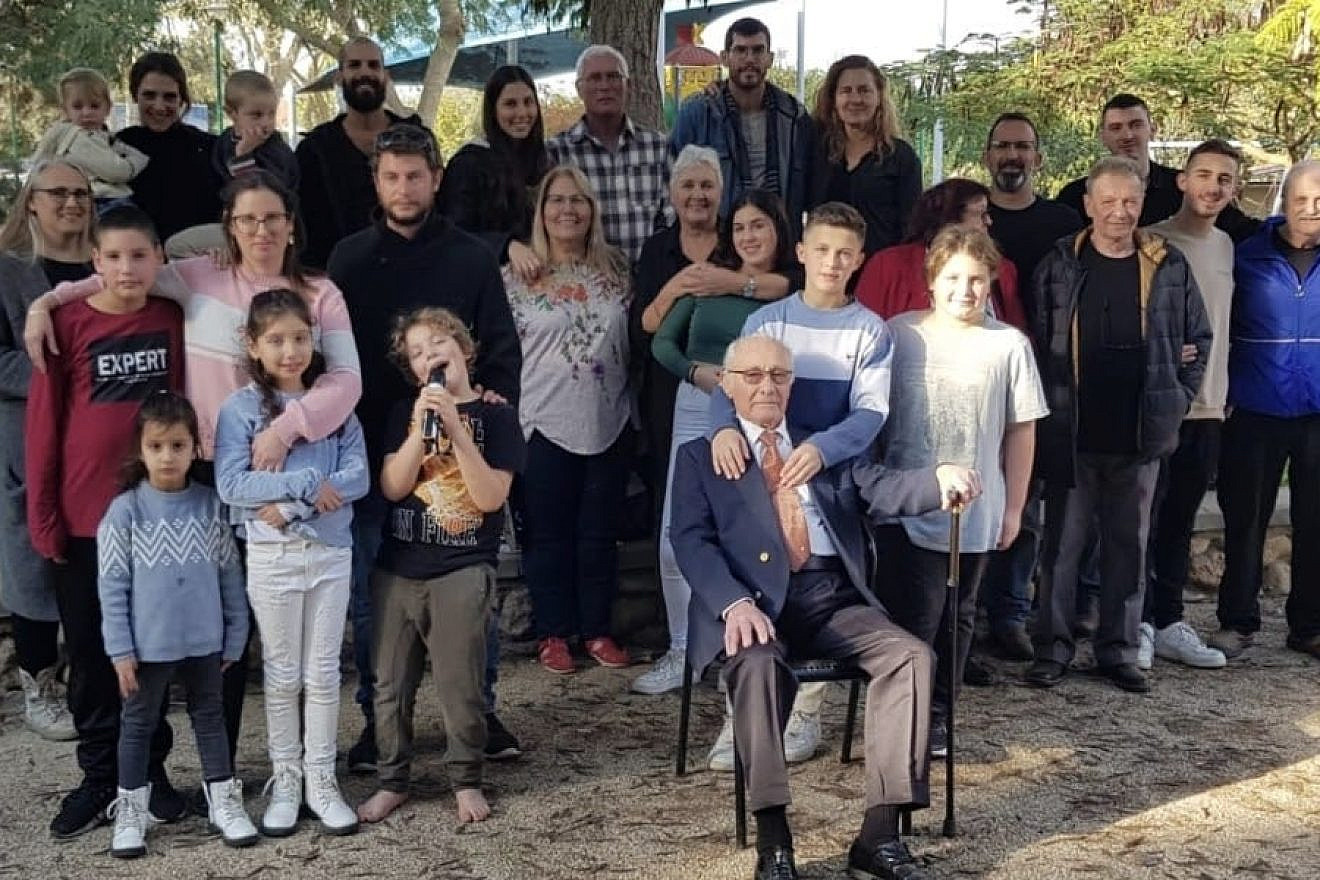The messages kept coming in to Kibbutz Holit’s emergency WhatsApp group.
“Save us, save us,” “Where is the army?” “They are trying to burn down the houses” and “There’s gunfire.”
A 7-year-old girl reported that she was hiding in a closet; a 15-year-old reported that his parents were killed and that he was shot in the stomach; a woman reported that she was suffocating from the smoke in the safe room of her burning house.
And a 91-year-old Holocaust survivor huddled in the safe room of his home with his Moldovan caretaker.
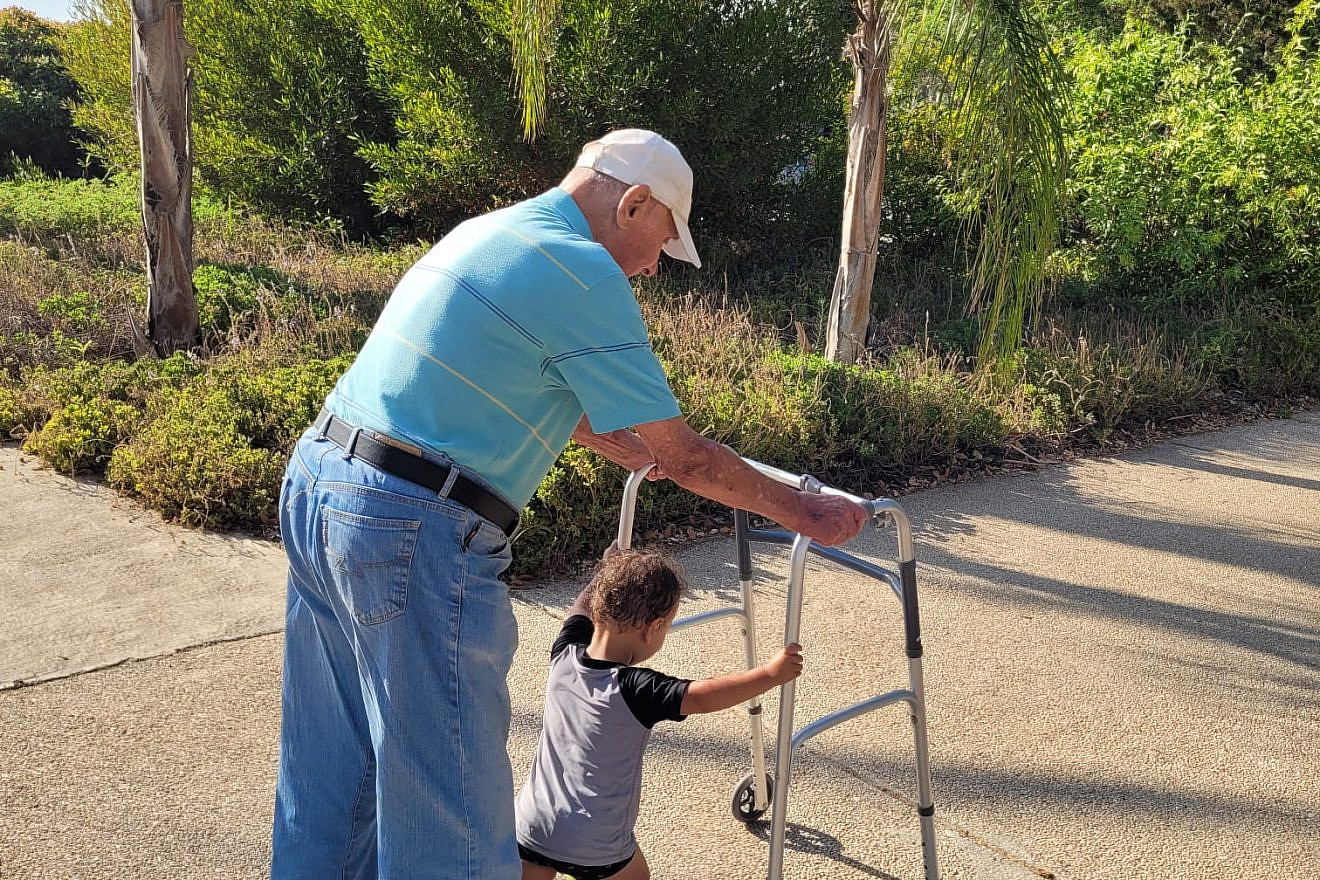
The national nightmare
It was the nightmarish morning of Oct. 7 in the kibbutz near the border with Gaza. It had just been overrun by Hamas terrorists.
Pnina Hendler, 64, was visiting her daughter in northern Israel that holiday weekend, while her 91-year-old father, Moshe Ridler, was at home in Holit with his caretaker.
When the alerts started going off at 6:30 a.m., Hendler’s sister, who was with her, contacted the 35-year-old caretaker, Petru Boscov, saying they should go to the sealed room. It was to be the last time they communicated.
“We thought it would be rocket fire and then back to normal,” Hendler recounted in an interview with JNS on Wednesday. It was a feeling shared in homes throughout the area by Israelis used to years of shelling from Gaza.
“We soon realized that this was something completely different.”
Reports came in of gunfire, of Arabic overheard. Hendler, a member of the kibbutz emergency communication team, messaged everybody to go to lockdown and remain silent.
Calls for help and murder
Then the pleas for help began streaming in.
It was now 8 a.m. and as word of bloody murder spread, Hendler and her sister tried in vain to reach their father or his caretaker by phone.
The urgent distress messages kept pouring in until about 2 p.m. as dozens of Hamas terrorists rampaged through the kibbutz, killing 13 people in the community of 200.
“My WhatsApps were all: “Save me save me,” Hendler recounted.
It was only about 2:30 p.m. that Israeli soldiers arrived and began evacuating people under gunfire
Around 11 p.m., after 15 hours, the sisters learned that Ridler, known as “the grandfather of the kibbutz,” and his caretaker had been murdered in their home.
Search and rescue teams later reported that a rocket-propelled grenade had been fired and a hand grenade had been thrown into the house. The 91-year-old was found dead in the bed in the safe room, while Boscov’s corpse was found just outside.
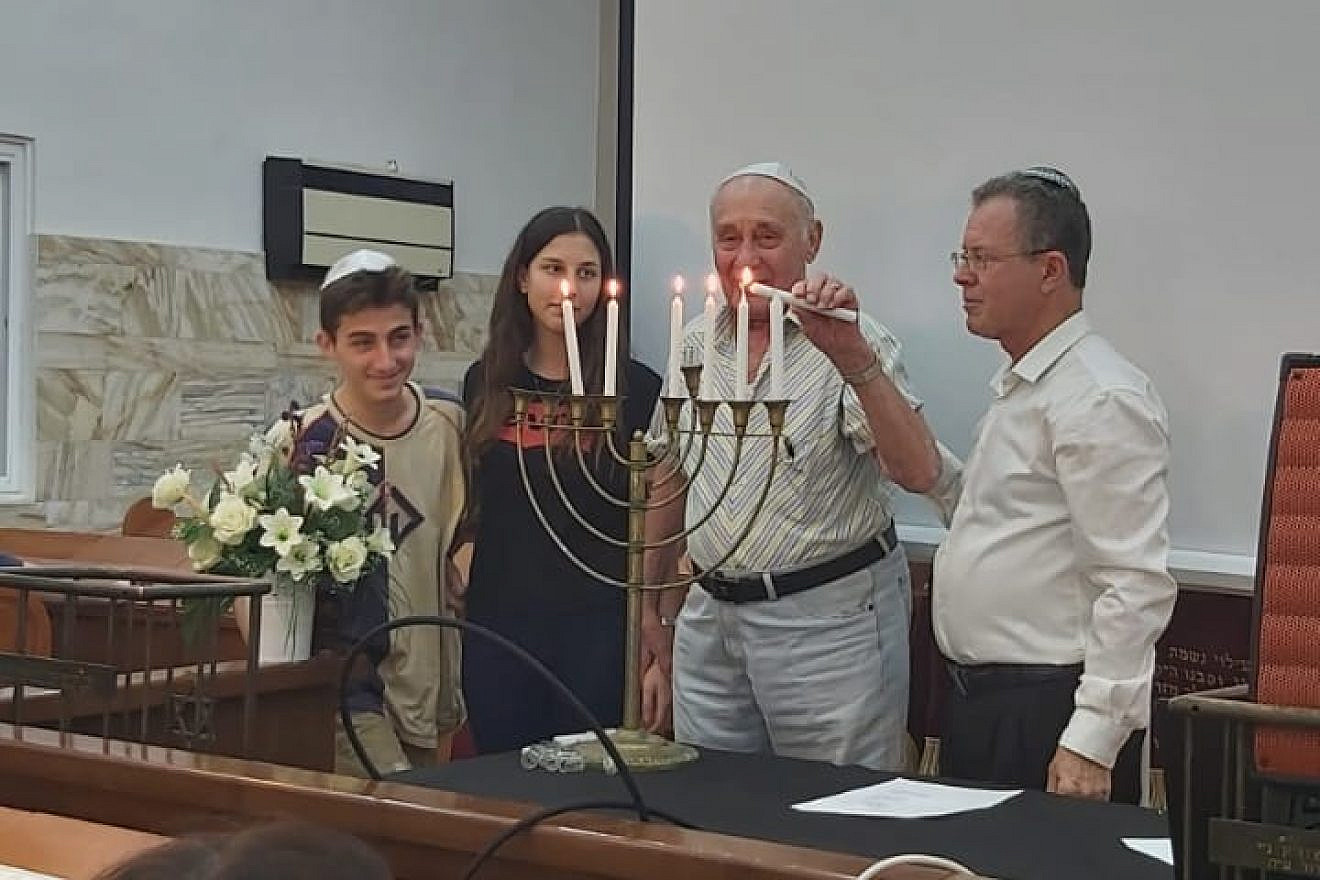
Holocaust childhood
It was a violent end to a life that began in violence as well.
Ridler was born in Romania in 1931. World War II broke out, and at age 9 he was taken with his mother and sister to a camp in Transnistria, a concentration point for Jews from Romania. His father and older sister were sent to a labor camp.
His mother and sister died in the camp from typhus.
At the age of 11, Ridler heard of a group of youths who were planning an escape and threatened to report them unless they took him with them, Hendler recounted.
He managed to escape and he didn’t stop running until he collapsed. A Ukrainian family found him in the fields and took him in. He worked as a shepherd for them till the end of the war.
At 14, he heard that some Jews had returned to Romania so he made his way there and found his father on the steps of the synagogue. He would later be reunited with his older sister too.
At 17, Ridler immigrated to Israel alone, where served in the Border Police in the new state. Later, he worked with immigrants for the Jewish Agency, and he continued to help Ethiopian immigrants into his retirement years.
Three years ago, Ridler moved to the desert kibbutz to be near his daughter. Holit, which was originally founded in 1978 in Sinai, was relocated to its present location in 1982 after the peace agreement with Egypt.
Last year, the family got him a caretaker; he and Boscov were known for their daily walks to the kibbutz shop.
Ridler is survived by three children, 10 grandchildren and eight great-grandchildren. His life will now be profiled in an international photo display of Holocaust survivors around the world known as the Lonka Project.
Boscov’s body was flown home to Moldova where he is being mourned by his widow and three young daughters.
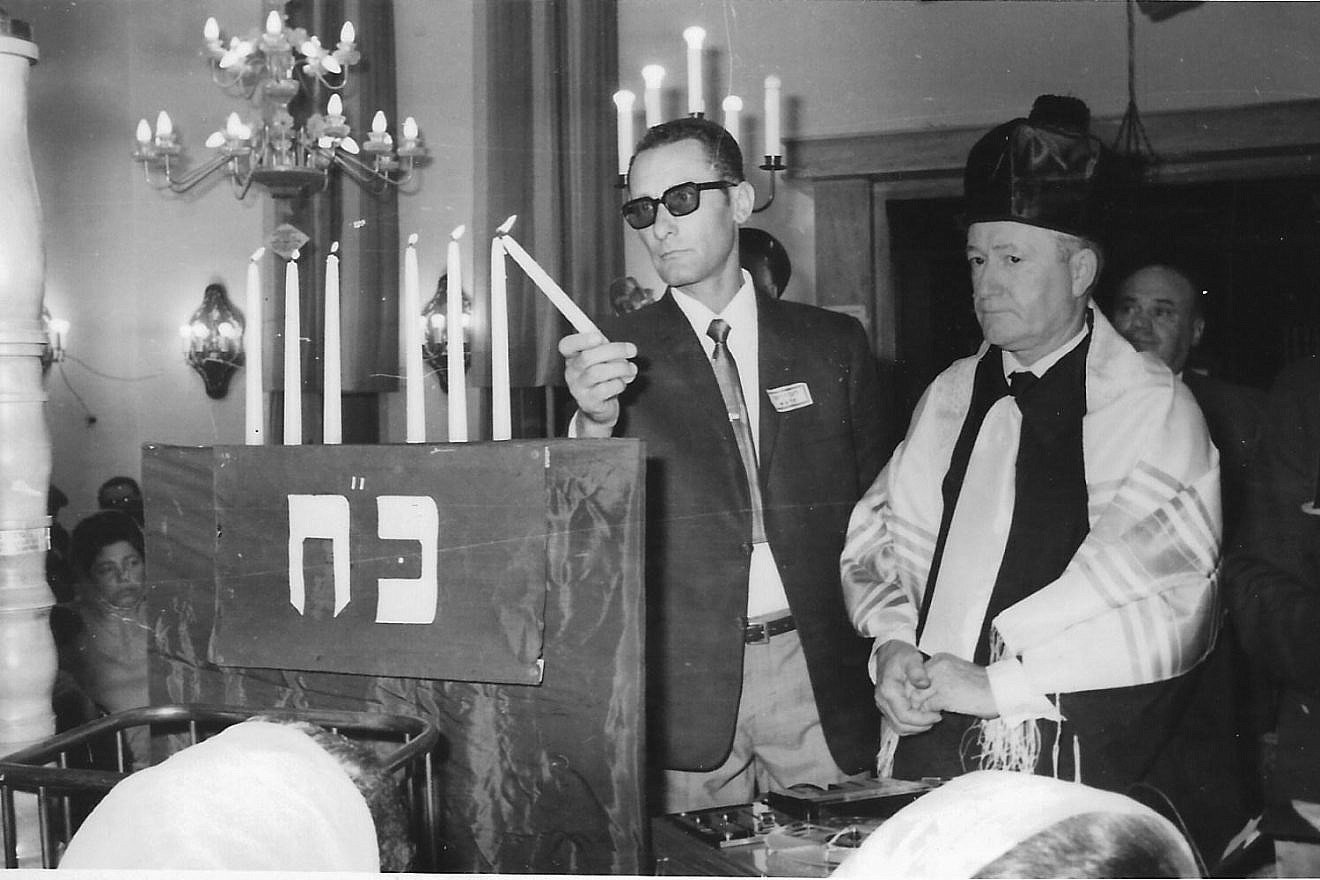
Never give up
“What father went through in his childhood in the Holocaust, families in Israel are living through now in 2023,” Hendler said.
She has not been back to the kibbutz since the attack. It is a closed military zone but she has seen a photo of the destruction at her father’s house and a video of her own completely demolished home.
“They did not leave a plate or a cup unbroken,” she said. “If I was home, I would not be talking to you right now,” she noted.
Hendler said that her father carried one message with him throughout his life, his eternal legacy. “Never give up,” he would always say.

